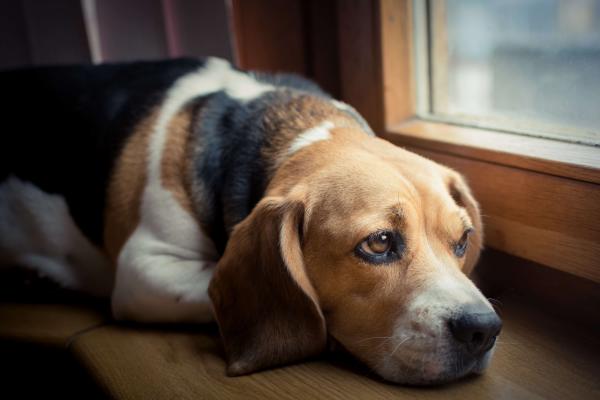
Anxiety, depression and panic attacks seem to be viral topics right now. Countless studies have tried to determine the cause and treatments have been found to manage symptoms. But all this research has been to help humans, which begs the question; do animals suffer these disorders as well?
Along with humans, dogs can exhibit separation anxiety.
Since all dogs are known to bark and pout when you walk out the door, it can be hard to know if your dog suffers from this disorder. Here are 7 signs your dog may have separation anxiety:
1. Excessive Vocalization
If your dog is howling, barking or screaming for the entire time you are gone, pay attention to these red flags. Panicked by the fact that you are gone, your dog is likely suffering from a panic attack when you leave him alone.
2. Sobbing only when you are gone
When you are home, you believe your dog can do no wrong. However, when you leave, he pouts and makes a mess. This is sign something is wrong. Often times when a dog suffers from separation anxiety (SA) they lose bodily functions as well.
3. Destructive escape routes
Has your dog escaped recently? Was it when you were not home?
If your home is utterly destroyed with claw marks and bites all over the place, then he may be suffering from a high form of SA. While climbing into the garbage to eat leftover spaghetti is normal, a dog trying everything he can to get out and find you is not.
4. Clingy behavior
These dogs often follow the owner everywhere. The bathroom, the kitchen, the closet, it doesn't matter. If he seems constantly glued to your side, he may need extra love and attention from you.
5. Excessive drooling
He is anxious. He cannot control himself. This may cause him to drool and potentially soak his crate and body with his own saliva. This is a sign of severe anxiety.
6. Stays still
When you are absent, he won't eat, drink, sleep or play. He just sits there and waits for you to come home. This is very worrisome behavior because a normal dog would love to eat, sleep or play even if their owner isn't around. If your dog does not seem to budge when you are away, don't ignore these clear signs of separation anxiety.
7. Too much excitement when you return
It's like Christmas morning whenever you return. Your dog cannot stop jumping for joy. If he missed you this much, there may be something else going on you should worry about. Although you love how happy he is, imagine the worry he felt 30 second ago when he thought you were gone for good.
Some signs are more telling than others, but even if you notice one of these traits in your dog, consider talking to your veterinarian. There are ways to help your dog stay happy and calm when you are away.

